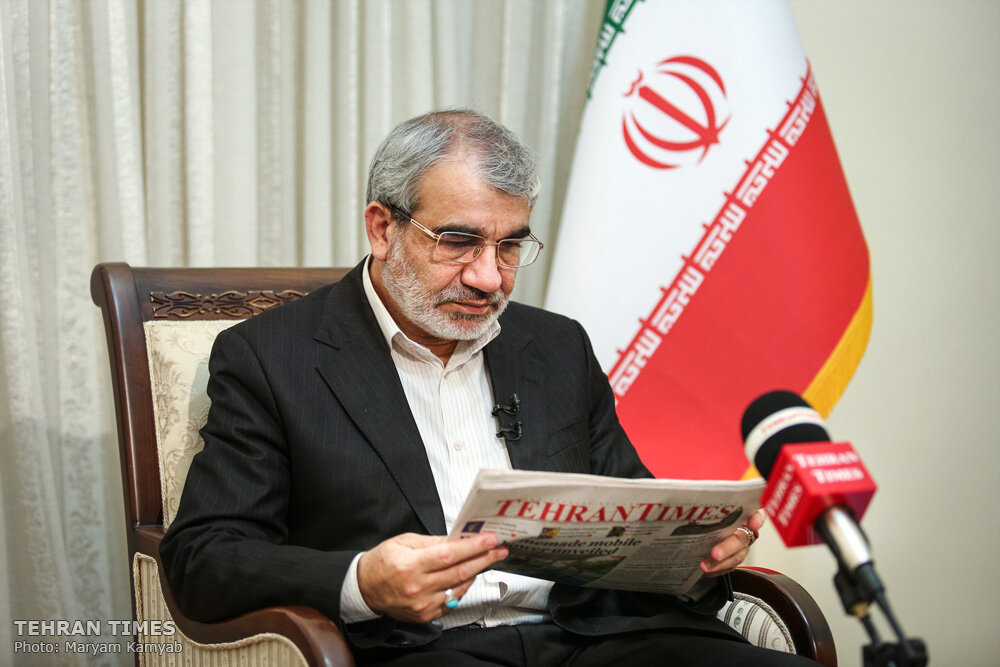By Abbas Ali Kadkhodaei

International legal scholarship has strongly emphasized the legality of intervention. According to a famous dictum by the International Court of Justice in 1986, it is believed that if valid consent is given by a representative and a still effective government, intervention by invitation is always legal and there is no prohibition of invited intervention.[1]
Therefore, military assistance on request can be legal when the purpose of the intervention is to realize objectives such as fighting terrorism.
State practice demonstrates that the legality of intervention by invitation has never been problematic when the purpose of such intervention was limited to the fight against terrorists who use the territory of the neighboring state as a ‘safe haven’ to launch attacks against the intervening state.
The applicability of these ‘exceptions’ raises delicate issues, and requires subjective judgments; regarding the existence of the ‘legitimate purpose’ invoked by the inviting and the intervening state.
‘Fighting terrorism’, which is raised in relation to the intervention of Islamic Republic of Iran in Syria and Iraq, raises concerns over the definition of terrorism and the question of who can decide that a specific group is a terrorist group.
It should be added that the designation of ‘terrorist groups’ is not challenging when it is the result of collective determination by the UN Security Council or other consensual mechanisms.
In the case of Iraq and Syria for instance, the UN Security Council clearly designates ISIL, Al-Nusrah Front ‘and all other individuals, groups, undertakings and entities associated with Al-Qaida’, as ‘terrorists’, while its readiness to add other groups to the list is also declared. There is thus no doubt about the fact that the groups that have been subjected to military intervention and assault in Iraq and Syria by the Islamic Republic of Iran are clearly ‘terrorist’ groups.
On the other hand, the Saudi-led war on Yemen, initiated on March 26, 2015, is completely illegal and illegitimate under international law. The illegal aggression took place without any UN Security Council authorization and was met with critical voices from considerable number of States.
Thus, according to the UN Security Council Resolutions, intervention by Islamic Republic of Iran has been recognized as the valid legal basis for all military operations against terrorist groups in Iraq and Syria, and all resolutions confirm the legitimate foundation of Iran’s intervention.[2]
While Iran’s intervention in Iraq and Syria brought about political reactions from certain countries that perceived Iran as a threat, no state raised any objections about the legality of Iranian intervention, recognized as legitimate by both Iraq and Iran on the basis of valid consent and the fight against terrorism (the two countries even signed a military pact to combat ISIL on 31 December 2014).[3]
Several meetings were held by the UN Security Council concerning the situation in Iraq and Syria, and adopted specific resolutions such as 2233 and 2249, to “urge[d] the international community, in accordance with international law to further strengthen and expand support for the Government of Iraq [and Syria] as it fights ISIL and associated armed groups.”[4]
Nonetheless, simple facts clearly establish that the military intervention of the United States in Syria was illegal and illegitimate. Firstly, it is clear that the government of Syria never requested the U.S. to intervene. In a letter sent to the UN Security Council on September 17, 2015, Syria emphasized that it “has not made any request to that effect”[5]. And secondly, consent has apparently never been asked from the government of Syria by the United States.[6]
It can be concluded that there were four reasons that cumulatively justified Iran’s intervention in Iraq and Syria: first, the governments of Iraq and Syria were legitimate; second, ISIL, Al-Nusrah Front, and all other individual terrorist groups in these countries were included in the UN list of terrorist organizations; third, Iraq and Syria were a victim of terrorist attacks by terrorist groups and faced a serious threat from international terrorist organizations; and fourth, the governments of Iraq and Syria requested the Iranian government to fight these terrorist entities.[7]
Therefore, it is impossible to use the doctrine of ‘intervention by invitation’ as a legal basis for the strikes of the United States in Syria. The Islamic Republic of Iran’s presence in the front lines of the fight against terrorism is in line with the principles of international law and international human rights demonstrating the legitimacy of its overseas operations and the country’s determination to respect human rights.
*Abbas Ali Kadkhodaei, a law expert, is a member of the oversight Guardian Council
[1] Military and Paramilitary Activities in and against Nicaragua (Nicaragua v. USA), Merits, Judgment of 27 June 1986, [1986] ICJ Rep. 14, para. 246.
[2] Since 2014, the recognized government of Iraq and Syria have authorized Islamic Republic of Iran to undertake military action against ISIL on their territory.
[3] BANNELIER-CHRISTAKIS, KARINE, “Military Interventions against ISIL in Iraq, Syria and Libya, and the Legal Basis of Consent”, Leiden Journal of International Law, Volume 29 Issue 3, 2016, p. 752.
[4] UN Doc. S/PRST/2014/20, 19 September 2014, Statement by the President of the Security Council. See also UN Doc. S/RES/2233, 29 July 2015 and UN Doc. S/RES/2249 of 20 November 2015
[5] UN Doc. S/2015/719, 21 September 2015, identical letters dated 17 September 2015 from the Permanent Representative of the Syrian Arab Republic to the United Nations addressed to the Secretary-General and the President of the Security Council.
[6] United States is hostile to the official government of Bashar al-Assad
[7] UN Doc. S/2014/440, 25 June 2014, Letter dated 25 June 2014 from the Permanent Representative of Iraq to the United Nations addressed to the Secretary-General.

No comments:
Post a Comment